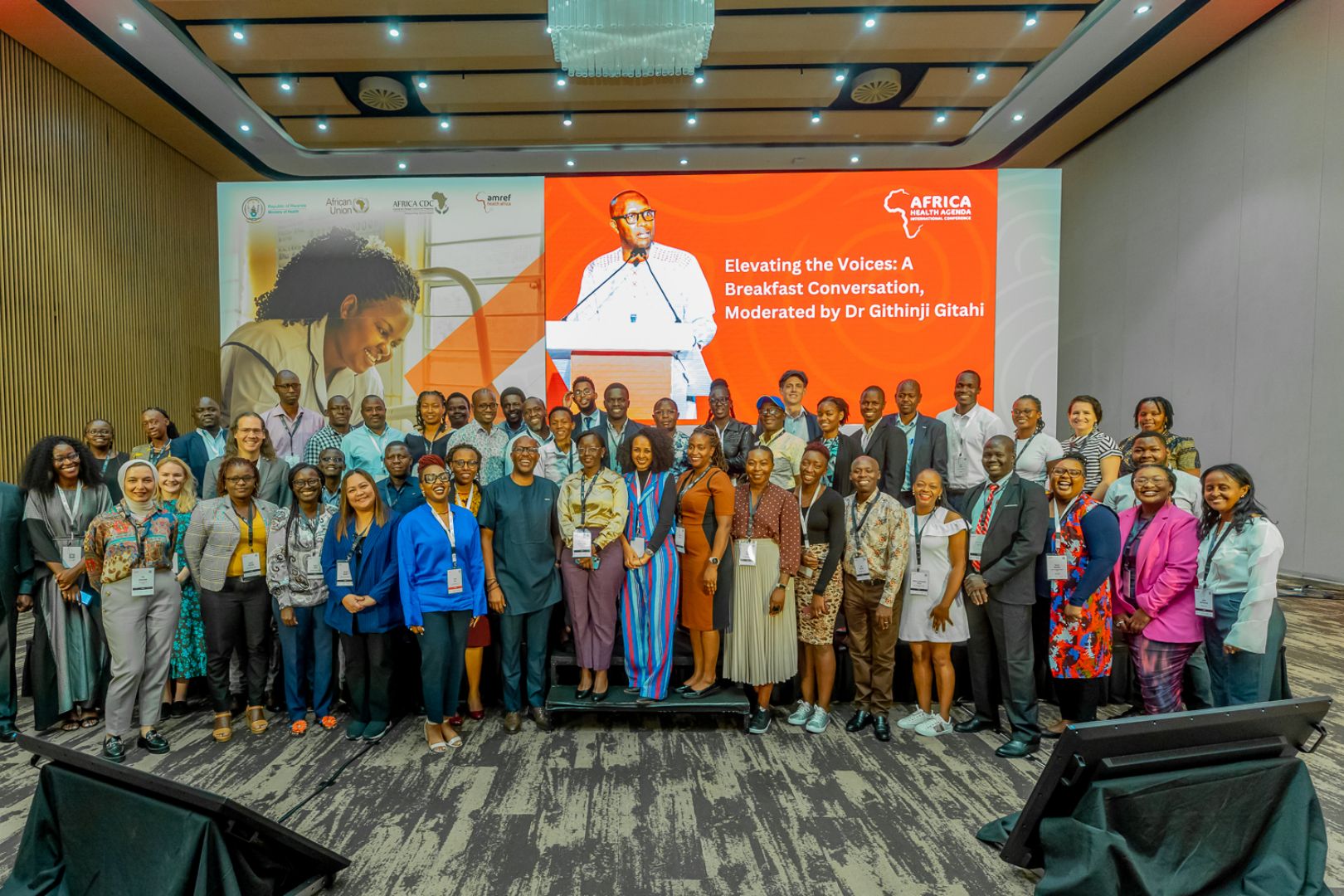Health challenges affecting Africa continue to be complex and intertwined. In order to prepare for future health threats, stronger collaboration among African countries, and inclusive leadership are needed ~ Hon. Mohammad Abd El Fattah, Undersecretary for Preventive Affairs – Ministry of Health and Population, Egypt
Day three of AHAIC 2023 focused on an array of themes with climate change and health interface taking center stage in a series of sessions that included two high-level plenary and 14 parallel sessions. Delegates delved into a range of topics including building climate resilience at the community level, leveraging technology to amplify global health, unlocking the power of public health data and closing the geographic and financial divide to empower African researchers.
Click HERE to read the full highlights.
Participants engaged in dialogue that explored both challenges and opportunities for sustainable, unified climate action and investment in health workers, with the general consensus being that Africa can – and must – do more to elevate the voices of those working to protect both people and planet and move beyond talk to action.
Climate change adaptation and mitigation featured prominently in a rare meeting between World Health Organization (WHO) and the private sector – including Pharmaceutical companies, where the need for collective effort in adaptation, and mitigation were discussed. Decarbonizing health system through measures such as proper waste management and industry approach must be prioritized. In other considerations, the need for pharmaceutical manufacturing, genomic data, and harmonized regulatory frameworks were recognized as critical in creating strong mechanisms for pandemic preparedness.
Key takeaways from the day’s sessions:
- The need for private sector involvement at the beginning of pandemics in creating frameworks, policies and response mechanisms rather than during and after the pandemic.
- Building infrastructure that can help with early warning systems, labs and strengthening health systems during pandemics requires heavy investment. The huge time gaps between pandemics creates a diminishing capacity discouraging investment.
- Sustainable health financing for Africa requires a multi-sectoral approach and collaboration between government and non-state actors to ensure a comprehensive budgeting process, as well as systems that hold government accountable for the commitments made at regional and global forums.
- The climate change and health challenges facing our continent require that we seek evidence and develop compelling arguments for advocacy on behalf of vulnerable communities. Our response to climate change must also take into account the needs of women and youth, not as token participants in discussions, but as active designers and implementers of health and climate policies.
- We need long-term and flexible financing to support our health workforce. For effective response to health emergencies, Africa must focus on building multidisciplinary, interoperable and deployable teams across the continent.
- It is time for Africa to set its own health research and development agenda, mobilize local resources for research funding and take greater leadership in research studies that respond to the needs of Africans.
- Technology is a tremendous enabler of positive health outcomes. But for it to help strengthen the continent’s health systems, African countries require deeper and more meaningful collaboration between the technology sector, healthcare workers, policymakers and communities.

